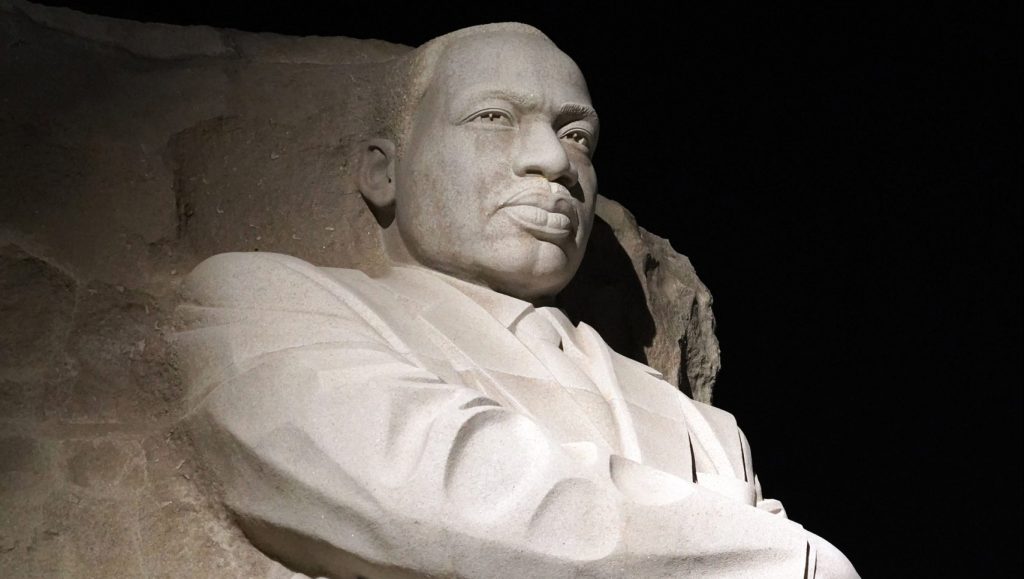While the United States has "come a long way" in addressing racism and injustice, much more remains to be accomplished to achieve the dream of "the beloved community" envisioned by the late Rev. Martin Luther King Jr., the president of the U.S. Conference of Catholic Bishops said.
Archbishop José H. Gomez of Los Angeles urged the country to overcome still-entrenched racist beliefs and discriminatory practices in a statement released in Washington to mark the annual holiday honoring the civil rights leader, which this year falls on Jan. 20.
"We have come a long way in our country, but we have not come nearly far enough," Archbishop Gomez said in the statement issued Jan. 16 by the USCCB. "Too many hearts and minds are clouded by racist presumptions of privilege and too many injustices in our society are still rooted in racism and discrimination."
The archbishop lamented that "too many" young African American men are killed across the nation or are "spending their best years behind bars."
He called on citizens to recommit themselves to assuring that all people have equal opportunity to overcome what Rev. King called "lonely islands of poverty."
Citing "disturbing outbreaks of racism and prejudice," the archbishop raised concern about the rise in anti-Semitic attacks, displays of white nationalism and nativism, and violence against Hispanics and other immigrants.
"Such bigotry is not worthy of a great nation. As Catholics and as Americans, we must reject every form of racism and anti-Semitism," he said.
"Racism is a sin that denies the truth about God and his creation, and it is a scandal that disfigures the beauty of America's founding vision," the statement continued. "In our 2018 pastoral letter on racism, my brother bishops and I stated: 'What is needed, and what we are calling for, is a genuine conversion of heart, a conversion that will compel change and the reform of our institutions and society.'"
Archbishop Gomez urged the country to honor Rev King's memory by committing to building the "beloved community" the civil rights leader envisioned, "an America where all men and women are treated as children of God, made in his image and endowed with dignity, equality and rights that can never be denied, no matter the color of their skin, the language they speak or the place they were born."
Archbishop Gomez’s full statement follows:
As our nation prepares to commemorate the life and witness of Rev. Martin Luther King, Jr., we are grateful for his courageous stand in solidarity with all who suffer injustice and his witness of love and nonviolence in the struggle for social change. But we are once again painfully aware that we are still far off from his dream for America, the ‘beloved community’ for which he gave his life.
We have come a long way in our country, but we have not come nearly far enough. Too many hearts and minds are clouded by racist presumptions of privilege and too many injustices in our society are still rooted in racism and discrimination. Too many young African American men are still being killed in our streets or spending their best years behind bars. Many minority neighborhoods in this country are still what they were in Rev. King’s time, what he called ‘lonely islands of poverty.’ Let us recommit ourselves to ensuring opportunity reaches every community.
In recent years, we have seen disturbing outbreaks of racism and prejudice against other groups. There has been a rise of anti-Semitic attacks and also ugly displays of white nationalism, nativism, and violence targeting Hispanics and other immigrants. Such bigotry is not worthy of a great nation. As Catholics and as Americans, we must reject every form of racism and anti-Semitism.
Racism is a sin that denies the truth about God and his creation, and it is a scandal that disfigures the beauty of America’s founding vision. In our 2018 pastoral letter on racism, my brother bishops and I stated: ‘What is needed, and what we are calling for, is a genuine conversion of heart, a conversion that will compel change and the reform of our institutions and society.’
Let us honor the memory of Rev. King by returning to what he called ‘the best in the American dream and the most sacred values in our Judeo-Christian heritage.’ Let us commit ourselves once more to building his ‘beloved community,’ an America where all men and women are treated as children of God, made in his image and endowed with dignity, equality, and rights that can never be denied, no matter the color of their skin, the language they speak, or the place they were born.
Other resources on combating racism are available online at www.usccb.org/issues-and-action/human-life-and-dignity/racism/educational-resources-on-racism.cfm.

